On Campus blog: Daily news updates from the tertiary education sector
University of Adelaide vice-chancellor Peter Hoj joined the annual fundraiser after noticing more people were sleeping rough.
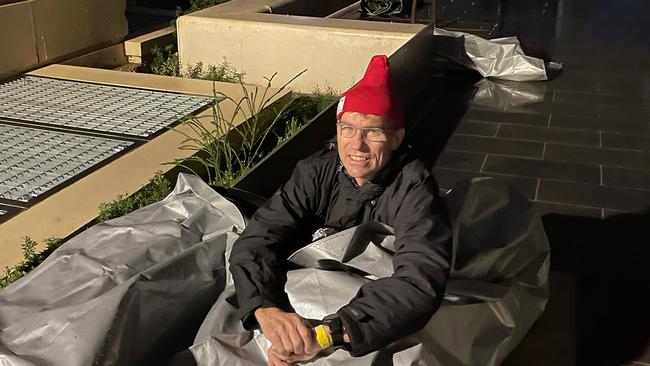
On Campus daily blog: Higher education news as it happens
–
Friday 18 June
–
VC dosses down; raises money
Peter Hoj has raised $44,000 in the Vinnies CEO Sleepout after dossing down in the wet and cold in Adelaide on Thursday night. The University of Adelaide vice-chancellor topped South Australia’s fundraisers for the event.
He was even given the keys to sleep in the “Vinnies van”, but instead auctioned the opportunity in order to raise more money.
“Having come back to Adelaide after eight years, and walking to work quite early through the city, it seemed to me that more people were sleeping on the streets than I’ve ever seen before,” said Professor Hoj, who was formerly VC at the University of South Australia. That speaks to the extreme vulnerability of people who need genuine care and support in their lives.”
“I am concerned that the real problem in the community is likely to be even deeper than what we see on the streets.”
Thursday June 17
–
ACCC allows unis to team up on international student return
NSW and ACT universities have been given the all clear under competition law to co-operate on arrangements for the return of international students.
The Australian Competition and Consumer Commission said it had authorised, on an interim basis, universities to work together on the scheme which will allow 250 international students a fortnight to arrive and go through quarantine.
The interim authorisation will allow a group of 14 universities in NSW and the ACT to allocate the student places among themselves, based on their 2019 international student enrolments.
“The interim authorisation simply provides an exemption from competition law for the universities to collaborate to facilitate implementation of the NSW Government’s policy to allow international students to return,” said ACCC chair Rod Sims.
–
Energy reform needs a human touch
Researchers and research funders must refocus the current energy transition research agenda to strategically direct and fund critical research gaps; complement existing strengths and reduce unnecessary duplication; and activate research that will lead to a more sustainable, affordable, reliable, and fair energy system.
These are the headline requests in the first Australian Energy Transition Research Plan from the Australian Council of Learned Academies.
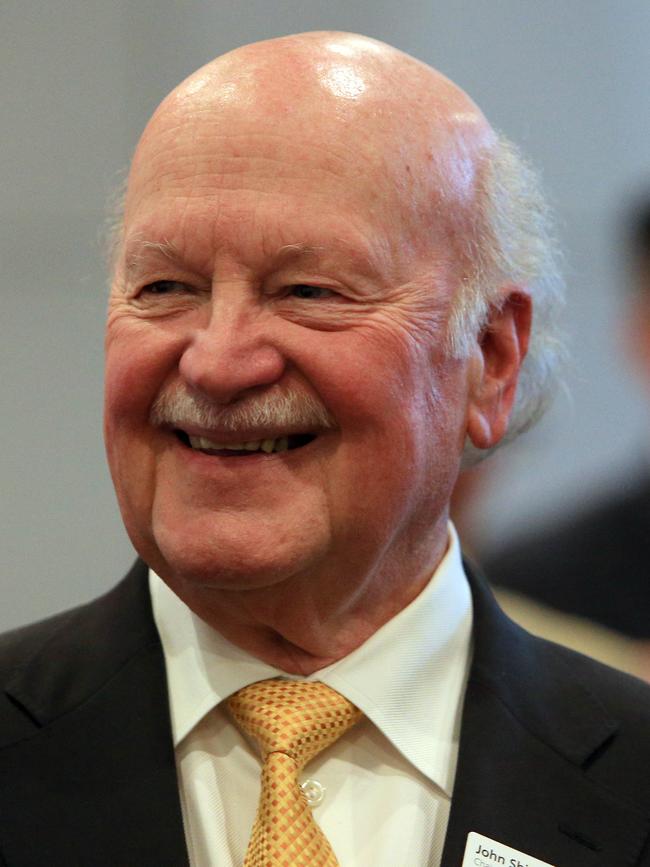
ACOLA chair John Shine urged immediate action. “We do not have time to wait; Australia needs to transform our energy sector to net-zero emissions rapidly,” Professor Shine said.
“ACOLA’s Research Plan seeks to shift the focus towards the breadth of interdisciplinary challenges, so that we can transition with minimum disruption to our society and economy as possible.”
The plan’s priorities will be grouped under three research themes: energy system dynamics (including technology); social engagement; and transition.
ACOLA research plan steering committee chair Drew Clarke said successful energy transition must both address the energy “trilemma” – being reliable, affordable, and achieving net-zero emissions — “and be fair, engaging people in the context of their lives, jobs and communities”.
“Australia performs well in science and technology energy research, and this must continue; but more research in the human and social dimensions is needed to better understand and support Australian communities through the energy transition,” Mr Clarke said.
–
Wednesday 16 June
–
Bronwyn Fox is the new CSIRO chief scientist
Swinburne University scientist Bronwyn Fox will be the CSIRO’s next chief scientist, filling the shoes of Cathy Foley who left the CSIRO to become the Commonwealth government’s chief scientist in January this year.
Professor Fox, a materials scientist who is currently Swinburne’s deputy vice-chancellor (research and enterprise), was awarded the prestigious 2020 Medal for Excellence in Scientific Research by the Royal Society of Victoria. She previously led Swinburne’s Manufacturing Futures Research Institute and its Factory for the Future.
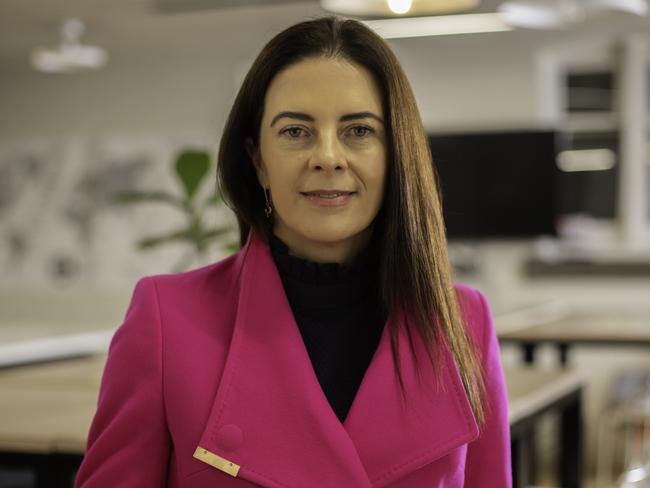
She started her career at the CSIRO and said it was wonderful to return “after starting there as a fresh graduate back in the 1990s”.
“I am passionate about championing science research and capability, as well as working with industry and fostering STEM careers,” Professor Fox said.
CSIRO chief executive Larry Marshall said Professor Fox had “a long history of bringing together researchers from across multiple scientific domains and institutions, leveraging digital science, and helping industry to translate brilliant ideas into real world solutions”.
Swinburne vice-chancellor Pascale Quester said the university was very disappointed to lose Professor Fox. However she added: “We are thrilled that she has been appointed to this critically important role with the CSIRO and we are very much looking forward to continuing to work with her.”
–
ECU appoints new dean of graduate research
Edith Cowan University has appointed Chris Abbiss as dean of graduate research.
ECU’s deputy vice-chancellor (research) Caroline Finch said Professor Abbiss’s “vast experience” would ensure the university’s research reputation would remain strong.
“He will enhance the university’s research environment, training and support to develop and foster the next generation of young researchers,” she said.
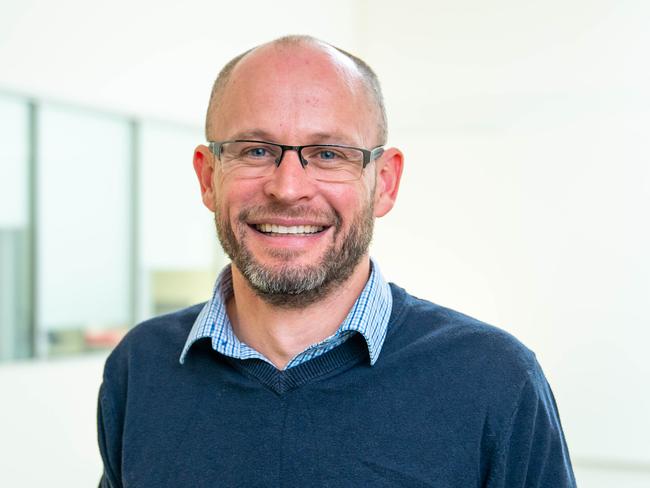
“A vibrant and strong higher degree by research training program is critical to this.”
Professor Abbiss is an exercise and sport science researcher and has supervised the completion of more than 20 higher degree by research students.
ECU plans to increase its research activity and impact and has just launched nine new strategic research institutes and centres in nutrition, exercise medicine, security research, precision health, integrative metabolomics and computational biology, sustainable energy and resources, aged care, work and wellbeing, and people, place and planet.
Professor Abbiss has been acting in the position since November last year.
–
Calling all country scholars
The federal government is drumming up interest for three scholarships earmarked for rural, regional and remote students to make sure that eligible applicants don’t miss out.
Minister for Decentralisation and Regional Education Andrew Gee said the Rural and Regional Enterprise Scholarships (worth up to $18,000), the $5000 Tertiary Access Payment to fund students’ relocation costs, and the third round of Destination Australia scholarships ($15,000) all help “level the playing field between country and city students and benefit regional economies”.
“Our regions have a lot to offer students,” Mr Gee said. “City students who move to study in the regions, and country students who choose to stay in the country to continue their higher education, benefit from an exceptional quality of life and access to a world-class education. These students also provide a much-needed economic boost to country Australia.”
Students interested in agriculture and similar courses received further encouragement last year when former Education Minister Dan Tehan halved the fees as part of his Job-Ready Graduates scheme. Enrolments in courses covered in the agriculture, horticulture, forestry and fishing category have surged since then according to official figures.
They show a 19.7 per cent increase in students choosing to study in those fields at Australian universities.
–
Tuesday 15 June
–Space age achievements
Astrophysicist Sascha Schediwy has won the top award for overall excellence in the 2021 Australian Space Awards as well as the Academic of the Year award.
Dr Schediwy, who works at the University of Western Australia and International Centre for Radio Astronomy Research (ICRAR) was recognised for the use of free-space laser links to send communication and timing signals through the Earth’s turbulent atmosphere, and eventually to outer space.
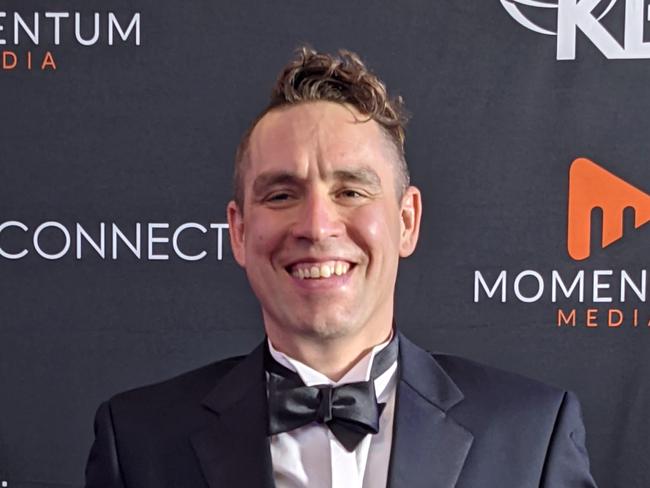
“I look forward to working with the rest of the Australian space community to advance Australia’s role in space over the next 12 months and beyond,” Dr Schediwy said.
The awards were a testament to the hard work and support of his team, colleagues and scientists at UWA and ICRAR he said.
UWA International Space Centre interim head Danail Obreschkow said Dr Schediwy’s research had “set new world records in free-space laser links and his leadership has led to lasting partnerships with the space industry”.
Other individual winners included the Female Leader of the Year, Australian National University Institute for Space’s Anna Moore, Graduate of the Year, UNSW Canberra’s Clint Therakam and Executive of the Year, managing director of geospatial data and analysis provider Geospatial Intelligence, Robert Coorey.
Geospatial Intelligence also took Defence Business of the Year and Innovator of the Year in the group awards.
–
Show us the MRFF data
More transparency is required in how grants are doled out by the Medical Research Future Fund (MRFF) according to Science and Technology Australia (STA)’s submission to the Australian National Audit Office, which is reviewing how effectively the Department of Health is managing the $20 billion fund.
“MRFF projects are assessed by a range of different granting organisations – rather than by a single entity – which makes it more complex than other grant funds,” STA chief executive officer Misha Schubert said in blogged commentary about the submission.
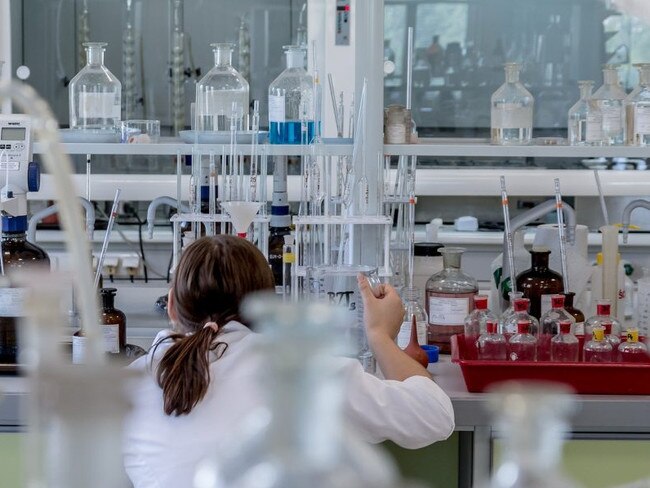
“Publishing clearer outlines to explain how decisions are made by each of these organisations would help to improve the transparency of the fund.”
One recommendation spelled out the need for detailed data on success rates including by sector, gender and geography.
“We also see an important opportunity to give more detailed feedback to unsuccessful applicants – which would, in turn, improve the quality of future applications, and give applicants a greater chance of success,” Ms Schubert said.
The report is due to be tabled in September.
–
Dumping disposables — the right way
RMIT University students have helped the Melbourne Convention and Exhibition Centre (MCEC) on its way towards solving its problem with disposable coffee cup litter and recycling.
As part of a student-industry partnership through RMIT Impact Academy six students in multi-disciplinary teams including degrees in marketing, economics, finance and information systems tackled the environmental challenge during a 10-week program.

“The participants in the RMIT Impact Academy program undertook research and developed a specific blueprint for MCEC,” the centre’s sustainability manager Samantha Ferrier said.
“The recommendation was to adopt a reusable coffee cup scheme by partnering with a reusable cup company, where the consumer would return their coffee cup after use.”
MCEC aims to eliminate single-use plastics from their events and onsite cafes by 2025.
–
Monday 14 June
–
CSU’s $66 million coastal attraction
The opening of the second part of Charles Sturt University’s $66 million development at Port Macquarie last week more than doubled the campus’s capacity from 1000 students to 2800 who will study courses including nursing, teaching, and paramedicine.
Conceived to attract international students, it also caters for domestic students and with the addition of 96 beds, has boosted student accommodation to 346 beds in total.
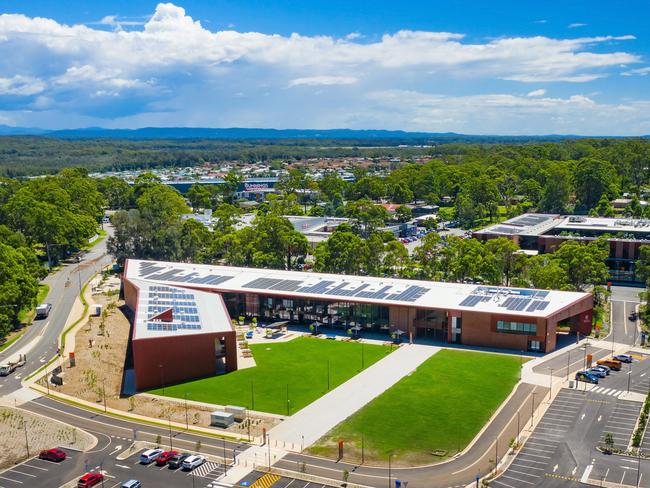
The NSW Premier Gladys Berejiklian opened the 6300 square metre, $21 million stage 2B development that includes the Port Macquarie International Education Centre, a NSW Emergency Services training room, an Innovation Hub and co-working spaces, and student support and amenity services facilities.
The NSW Government’s Regional Growth Fund’s Growing Local Economies program contributed $15 million towards stage 2B of the development.
“Not only will the resulting increase in student numbers further enhance the campus’s already stellar reputation, domestically and internationally, for quality education, it will provide an ongoing boost to the region’s economy,” interim vice-chancellor John Germov said.
The campus will also be made available to Resilience NSW, NSW Police, SES, ambulance and other emergency service providers for professional development, collaboration and exercises.
–
Events coming up
ITECA National Skills Summit (June 25). Hilton, Sydney
A series of panel discussions led by industry stakeholders, skills sector opinion leaders and students will consider the strengths of Australia’s skills sector focusing on where improvements can be made to ensure students get the training and skills that employers require.
Community Colleges Australia National 2021 Adult and Community Education (ACE) Summit(June 29). The Mint, Sydney, and online
A showcase for ACE providers’ innovative programs and pathways that can help governments succeed in meeting Australia’s economic, employment and social challenges in the wake of the pandemic-induced economic downturn.
‘No Frills’, the 30th National VET Research Conference (7-9 July). Online
The annual mid year conference of the National Centre for Vocational Education Research. This year’s theme is “Past informing the future”. It will be held online due to uncertainty about Covid restrictions.
Collaborate Innovate 2021 (9-11 August). Canberra
The Cooperative Research Centre Association conference will feature an early career researchers competition, the annual Ralph Slatyer address, and the 30th anniversity of the CRC Innovation Showcase at Parliament House.
Knowledge Commercialisation Australasia Annual Conference (8-10 September) RACV Royal Pines Resort, Gold Coast
The conference theme is Global Partnerships and Commercialisation themes. It also features the annual KCA awards that celebrate the achievements of members, and highlight “top tier work” in Australasian tech transfer.
Australian International Education Conference (5-8 October) Gold Coast Convention and Exhibition Centre and online
AIEC 2021 will explore new horizons for international education with five key subthemes: global challenges, digital innovation, life and learning, policy and politics, and strategic insights.



To join the conversation, please log in. Don't have an account? Register
Join the conversation, you are commenting as Logout